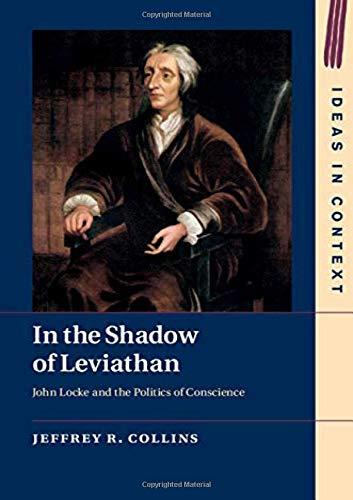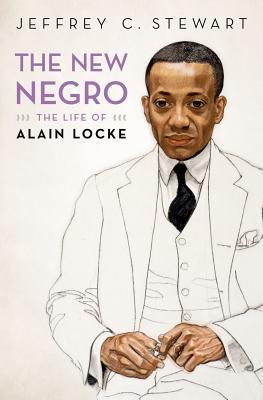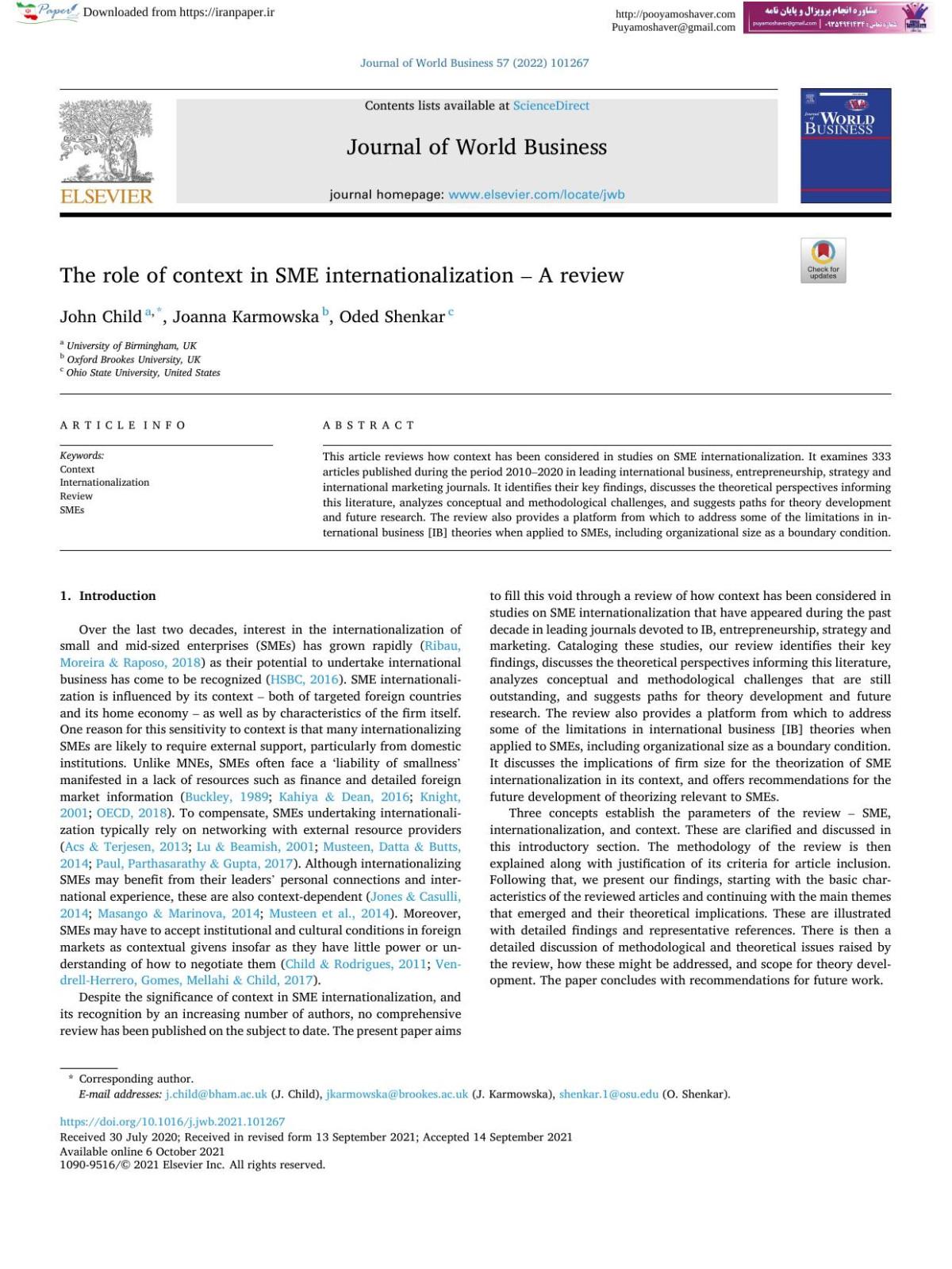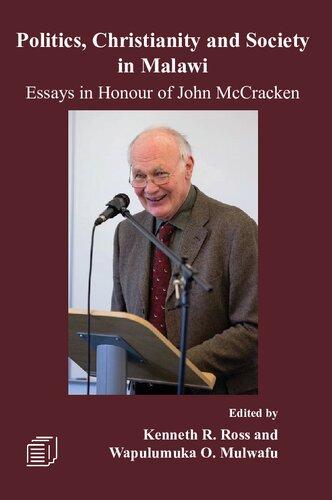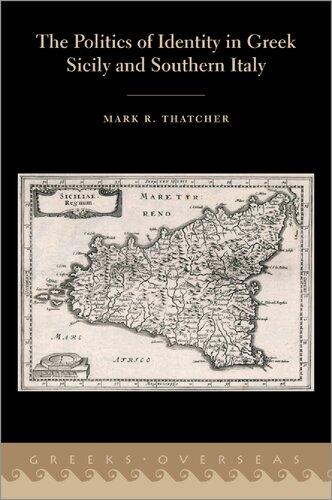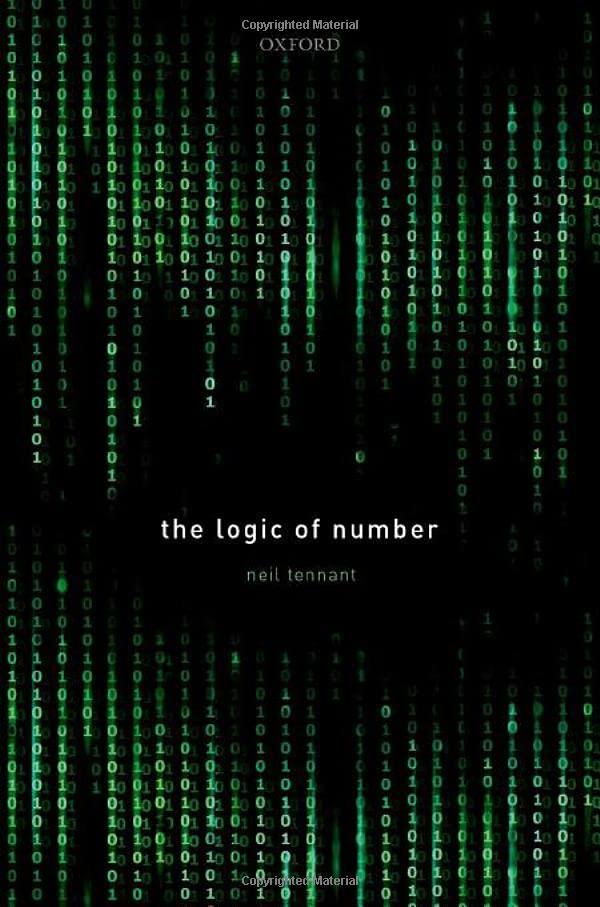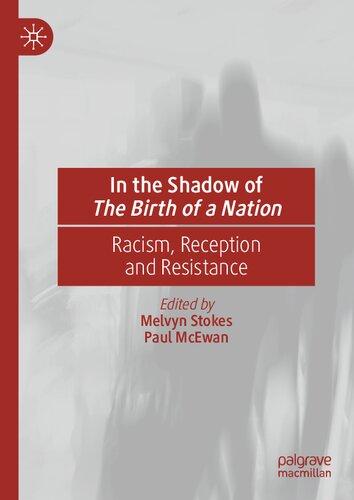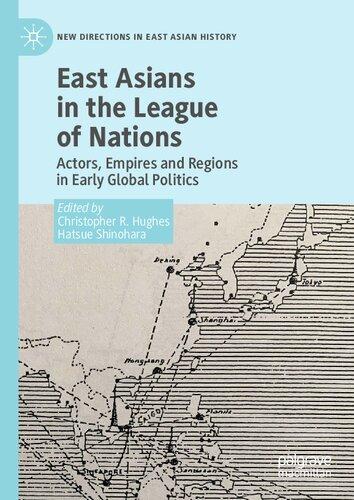In the Shadow of Leviathan: John Locke and the Politics of Conscience: 127 (Ideas in Context, Series Number 127) Jeffrey R. Collins Visit to download the full and correct content document: https://ebookmass.com/product/in-the-shadow-of-leviathan-john-locke-and-the-politics -of-conscience-127-ideas-in-context-series-number-127-jeffrey-r-collins/
More products digital (pdf, epub, mobi) instant download maybe you interests ...
The New Negro: The Life of Alain Locke Jeffrey C. Stewart
https://ebookmass.com/product/the-new-negro-the-life-of-alainlocke-jeffrey-c-stewart/
In the Shadow of Humanity: A Novel N. John Williams
https://ebookmass.com/product/in-the-shadow-of-humanity-a-noveln-john-williams/
The role of context in SME internationalization – A review John Child
https://ebookmass.com/product/the-role-of-context-in-smeinternationalization-a-review-john-child/
Politics, Christianity and Society in Malawi: Essays in Honour of John McCracken Kenneth R. Ross (Editor)
https://ebookmass.com/product/politics-christianity-and-societyin-malawi-essays-in-honour-of-john-mccracken-kenneth-r-rosseditor/
The Politics of Identity in Greek Sicily and Southern Italy Mark R. Thatcher
https://ebookmass.com/product/the-politics-of-identity-in-greeksicily-and-southern-italy-mark-r-thatcher/
Deciphering China’s AI Dream. The context, components, capabilities, and consequences of China’s strategy to lead the world in AI Jeffrey Ding
https://ebookmass.com/product/deciphering-chinas-ai-dream-thecontext-components-capabilities-and-consequences-of-chinasstrategy-to-lead-the-world-in-ai-jeffrey-ding/
The Logic of Number Neil Tennant https://ebookmass.com/product/the-logic-of-number-neil-tennant/
In the Shadow of The Birth of a Nation. Racism, Reception and Resistance Melvyn Stokes
https://ebookmass.com/product/in-the-shadow-of-the-birth-of-anation-racism-reception-and-resistance-melvyn-stokes/
East Asians in the League of Nations: Actors, Empires and Regions in Early Global Politics Christopher R. Hughes
https://ebookmass.com/product/east-asians-in-the-league-ofnations-actors-empires-and-regions-in-early-global-politicschristopher-r-hughes/
INTHESHADOWOFLEVIATHAN ThomasHobbesandJohnLockesittogetherinthecanonofpolitical thoughtbutarerarelytreatedincommonhistoricalaccounts.This booknarratestheirintertwinedcareersduringtheRestorationperiod, whenthetwomenfoundthemselvesincloseproximityandentangled inmanyofthesamepoliticalconflicts.Bringingnewsourcematerial tobear, IntheShadowofLeviathan establishestheinfluenceof HobbesianthoughtoverLocke,particularlyinrelationtothepreeminentquestionofreligioustoleration.ExcavatingHobbes’ snow forgottencaseforaprudent, politique tolerationgiftedbysovereign power,JeffreyCollinsarguesthatmodern,liberalthinkingabout tolerationwastransformedbyLocke’sgradualemancipationfrom thisHobbesianmodeofthought.Thisbookinvestigatesthoselandmarkevents – thecivilwar,Restoration,thepopishplot,the Revolutionof 1688 – whicheventuallyforcedLocketoconfrontthe limitsof politique toleration,andtodeviseanaccountofreligious freedomasaninalienableright.
jeffreyr.collins isAssociateProfessorofHistoryatQueen’ s University,Canada.Heistheauthorof TheAllegianceofThomas Hobbes (2005)andnumerousarticlesonearlymodernreligionand politicalthoughtinjournalssuchas ModernIntellectualHistory and the JournalofModernHistory.Heisalsoaregularbookreviewerfor the WallStreetJournal andthe TimesLiterarySupplement.
ideasincontext Editedby DavidArmitage,RichardBourke,JenniferPittsandJohnRobertson
Thebooksinthisserieswilldiscusstheemergenceofintellectualtraditionsandof relatednewdisciplines.Theprocedures,aimsandvocabulariesthatweregenerated willbesetinthecontextofthealternativesavailablewithinthecontemporary frameworksofideasandinstitutions.Throughdetailedstudiesoftheevolutionof suchtraditions,andtheirmodificationbydifferentaudiences,itishopedthat anewpicturewillformofthedevelopmentofideasintheirconcretecontexts.By thismeans,artificialdistinctionsbetweenthehistoryofphilosophy,ofthevarious sciences,ofsocietyandpolitics,andofliteraturemaybeseentodissolve.
TheseriesispublishedwiththesupportoftheExxonFoundation.
Alistofbooksintheseriescanbefoundattheendofthevolume.
INTHESHADOW OFLEVIATHAN JohnLockeandthePoliticsofConscience JEFFREYR.COLLINS Queen’sUniversity,Ontario
UniversityPrintingHouse,Cambridge cb 28 bs ,UnitedKingdom OneLibertyPlaza, 20thFloor,NewYork, ny 10006 ,USA
477 WilliamstownRoad,PortMelbourne, vic 3207 ,Australia
314 – 321 , 3 rdFloor,Plot 3 ,SplendorForum,JasolaDistrictCentre, NewDelhi – 110025 ,India
79 AnsonRoad,# 06 – 04 / 06 ,Singapore 079906
CambridgeUniversityPressispartoftheUniversityofCambridge. ItfurtherstheUniversity ’ smissionbydisseminatingknowledgeinthepursuitof education,learning,andresearchatthehighestinternationallevelsofexcellence.
www.cambridge.org
Informationonthistitle: www.cambridge.org/9781108478816
doi : 10 1017 / 9781108778879
©JeffreyR.Collins 2020
Thispublicationisincopyright.Subjecttostatutoryexception andtotheprovisionsofrelevantcollectivelicensingagreements, noreproductionofanypartmaytakeplacewithoutthewritten permissionofCambridgeUniversityPress.
Firstpublished 2020
PrintedintheUnitedKingdombyTJInternationalLtd,PadstowCornwall
AcataloguerecordforthispublicationisavailablefromtheBritishLibrary.
isbn 978 - 1 - 108 - 47881 - 6 Hardback
CambridgeUniversityPresshasnoresponsibilityforthepersistenceoraccuracyof URLsforexternalorthird-partyinternetwebsitesreferredtointhispublication anddoesnotguaranteethatanycontentonsuchwebsitesis,orwillremain, accurateorappropriate.
INTHESHADOWOFLEVIATHAN ThomasHobbesandJohnLockesittogetherinthecanonofpolitical thoughtbutarerarelytreatedincommonhistoricalaccounts.This booknarratestheirintertwinedcareersduringtheRestorationperiod, whenthetwomenfoundthemselvesincloseproximityandentangled inmanyofthesamepoliticalconflicts.Bringingnewsourcematerial tobear, IntheShadowofLeviathan establishestheinfluenceof HobbesianthoughtoverLocke,particularlyinrelationtothepreeminentquestionofreligioustoleration.ExcavatingHobbes’ snow forgottencaseforaprudent, politique tolerationgiftedbysovereign power,JeffreyCollinsarguesthatmodern,liberalthinkingabout tolerationwastransformedbyLocke’sgradualemancipationfrom thisHobbesianmodeofthought.Thisbookinvestigatesthoselandmarkevents – thecivilwar,Restoration,thepopishplot,the Revolutionof 1688 – whicheventuallyforcedLocketoconfrontthe limitsof politique toleration,andtodeviseanaccountofreligious freedomasaninalienableright.
jeffreyr.collins isAssociateProfessorofHistoryatQueen’ s University,Canada.Heistheauthorof TheAllegianceofThomas Hobbes (2005)andnumerousarticlesonearlymodernreligionand politicalthoughtinjournalssuchas ModernIntellectualHistory and the JournalofModernHistory.Heisalsoaregularbookreviewerfor the WallStreetJournal andthe TimesLiterarySupplement.
ideasincontext Editedby DavidArmitage,RichardBourke,JenniferPittsandJohnRobertson
Thebooksinthisserieswilldiscusstheemergenceofintellectualtraditionsandof relatednewdisciplines.Theprocedures,aimsandvocabulariesthatweregenerated willbesetinthecontextofthealternativesavailablewithinthecontemporary frameworksofideasandinstitutions.Throughdetailedstudiesoftheevolutionof suchtraditions,andtheirmodificationbydifferentaudiences,itishopedthat anewpicturewillformofthedevelopmentofideasintheirconcretecontexts.By thismeans,artificialdistinctionsbetweenthehistoryofphilosophy,ofthevarious sciences,ofsocietyandpolitics,andofliteraturemaybeseentodissolve.
TheseriesispublishedwiththesupportoftheExxonFoundation.
Alistofbooksintheseriescanbefoundattheendofthevolume.
INTHESHADOW OFLEVIATHAN JohnLockeandthePoliticsofConscience JEFFREYR.COLLINS Queen’sUniversity,Ontario
UniversityPrintingHouse,Cambridge cb 28 bs ,UnitedKingdom OneLibertyPlaza, 20thFloor,NewYork, ny 10006 ,USA
477 WilliamstownRoad,PortMelbourne, vic 3207 ,Australia
314 – 321 , 3 rdFloor,Plot 3 ,SplendorForum,JasolaDistrictCentre, NewDelhi – 110025 ,India
79 AnsonRoad,# 06 – 04 / 06 ,Singapore 079906
CambridgeUniversityPressispartoftheUniversityofCambridge. ItfurtherstheUniversity ’ smissionbydisseminatingknowledgeinthepursuitof education,learning,andresearchatthehighestinternationallevelsofexcellence.
www.cambridge.org
Informationonthistitle: www.cambridge.org/9781108478816
doi : 10 1017 / 9781108778879
©JeffreyR.Collins 2020
Thispublicationisincopyright.Subjecttostatutoryexception andtotheprovisionsofrelevantcollectivelicensingagreements, noreproductionofanypartmaytakeplacewithoutthewritten permissionofCambridgeUniversityPress.
Firstpublished 2020
PrintedintheUnitedKingdombyTJInternationalLtd,PadstowCornwall
AcataloguerecordforthispublicationisavailablefromtheBritishLibrary.
isbn 978 - 1 - 108 - 47881 - 6 Hardback
CambridgeUniversityPresshasnoresponsibilityforthepersistenceoraccuracyof URLsforexternalorthird-partyinternetwebsitesreferredtointhispublication anddoesnotguaranteethatanycontentonsuchwebsitesis,orwillremain, accurateorappropriate.
INTHESHADOWOFLEVIATHAN ThomasHobbesandJohnLockesittogetherinthecanonofpolitical thoughtbutarerarelytreatedincommonhistoricalaccounts.This booknarratestheirintertwinedcareersduringtheRestorationperiod, whenthetwomenfoundthemselvesincloseproximityandentangled inmanyofthesamepoliticalconflicts.Bringingnewsourcematerial tobear, IntheShadowofLeviathan establishestheinfluenceof HobbesianthoughtoverLocke,particularlyinrelationtothepreeminentquestionofreligioustoleration.ExcavatingHobbes’ snow forgottencaseforaprudent, politique tolerationgiftedbysovereign power,JeffreyCollinsarguesthatmodern,liberalthinkingabout tolerationwastransformedbyLocke’sgradualemancipationfrom thisHobbesianmodeofthought.Thisbookinvestigatesthoselandmarkevents – thecivilwar,Restoration,thepopishplot,the Revolutionof 1688 – whicheventuallyforcedLocketoconfrontthe limitsof politique toleration,andtodeviseanaccountofreligious freedomasaninalienableright.
jeffreyr.collins isAssociateProfessorofHistoryatQueen’ s University,Canada.Heistheauthorof TheAllegianceofThomas Hobbes (2005)andnumerousarticlesonearlymodernreligionand politicalthoughtinjournalssuchas ModernIntellectualHistory and the JournalofModernHistory.Heisalsoaregularbookreviewerfor the WallStreetJournal andthe TimesLiterarySupplement.
ideasincontext Editedby DavidArmitage,RichardBourke,JenniferPittsandJohnRobertson
Thebooksinthisserieswilldiscusstheemergenceofintellectualtraditionsandof relatednewdisciplines.Theprocedures,aimsandvocabulariesthatweregenerated willbesetinthecontextofthealternativesavailablewithinthecontemporary frameworksofideasandinstitutions.Throughdetailedstudiesoftheevolutionof suchtraditions,andtheirmodificationbydifferentaudiences,itishopedthat anewpicturewillformofthedevelopmentofideasintheirconcretecontexts.By thismeans,artificialdistinctionsbetweenthehistoryofphilosophy,ofthevarious sciences,ofsocietyandpolitics,andofliteraturemaybeseentodissolve.
TheseriesispublishedwiththesupportoftheExxonFoundation.
Alistofbooksintheseriescanbefoundattheendofthevolume.
INTHESHADOW OFLEVIATHAN JohnLockeandthePoliticsofConscience JEFFREYR.COLLINS Queen’sUniversity,Ontario
UniversityPrintingHouse,Cambridge cb 28 bs ,UnitedKingdom OneLibertyPlaza, 20thFloor,NewYork, ny 10006 ,USA
477 WilliamstownRoad,PortMelbourne, vic 3207 ,Australia
314 – 321 , 3 rdFloor,Plot 3 ,SplendorForum,JasolaDistrictCentre, NewDelhi – 110025 ,India
79 AnsonRoad,# 06 – 04 / 06 ,Singapore 079906
CambridgeUniversityPressispartoftheUniversityofCambridge. ItfurtherstheUniversity ’ smissionbydisseminatingknowledgeinthepursuitof education,learning,andresearchatthehighestinternationallevelsofexcellence.
www.cambridge.org
Informationonthistitle: www.cambridge.org/9781108478816
doi : 10 1017 / 9781108778879
©JeffreyR.Collins 2020
Thispublicationisincopyright.Subjecttostatutoryexception andtotheprovisionsofrelevantcollectivelicensingagreements, noreproductionofanypartmaytakeplacewithoutthewritten permissionofCambridgeUniversityPress.
Firstpublished 2020
PrintedintheUnitedKingdombyTJInternationalLtd,PadstowCornwall
AcataloguerecordforthispublicationisavailablefromtheBritishLibrary.
isbn 978 - 1 - 108 - 47881 - 6 Hardback
CambridgeUniversityPresshasnoresponsibilityforthepersistenceoraccuracyof URLsforexternalorthird-partyinternetwebsitesreferredtointhispublication anddoesnotguaranteethatanycontentonsuchwebsitesis,orwillremain, accurateorappropriate.
INTHESHADOWOFLEVIATHAN ThomasHobbesandJohnLockesittogetherinthecanonofpolitical thoughtbutarerarelytreatedincommonhistoricalaccounts.This booknarratestheirintertwinedcareersduringtheRestorationperiod, whenthetwomenfoundthemselvesincloseproximityandentangled inmanyofthesamepoliticalconflicts.Bringingnewsourcematerial tobear, IntheShadowofLeviathan establishestheinfluenceof HobbesianthoughtoverLocke,particularlyinrelationtothepreeminentquestionofreligioustoleration.ExcavatingHobbes’ snow forgottencaseforaprudent, politique tolerationgiftedbysovereign power,JeffreyCollinsarguesthatmodern,liberalthinkingabout tolerationwastransformedbyLocke’sgradualemancipationfrom thisHobbesianmodeofthought.Thisbookinvestigatesthoselandmarkevents – thecivilwar,Restoration,thepopishplot,the Revolutionof 1688 – whicheventuallyforcedLocketoconfrontthe limitsof politique toleration,andtodeviseanaccountofreligious freedomasaninalienableright.
jeffreyr.collins isAssociateProfessorofHistoryatQueen’ s University,Canada.Heistheauthorof TheAllegianceofThomas Hobbes (2005)andnumerousarticlesonearlymodernreligionand politicalthoughtinjournalssuchas ModernIntellectualHistory and the JournalofModernHistory.Heisalsoaregularbookreviewerfor the WallStreetJournal andthe TimesLiterarySupplement.
ideasincontext Editedby DavidArmitage,RichardBourke,JenniferPittsandJohnRobertson
Thebooksinthisserieswilldiscusstheemergenceofintellectualtraditionsandof relatednewdisciplines.Theprocedures,aimsandvocabulariesthatweregenerated willbesetinthecontextofthealternativesavailablewithinthecontemporary frameworksofideasandinstitutions.Throughdetailedstudiesoftheevolutionof suchtraditions,andtheirmodificationbydifferentaudiences,itishopedthat anewpicturewillformofthedevelopmentofideasintheirconcretecontexts.By thismeans,artificialdistinctionsbetweenthehistoryofphilosophy,ofthevarious sciences,ofsocietyandpolitics,andofliteraturemaybeseentodissolve.
TheseriesispublishedwiththesupportoftheExxonFoundation.
Alistofbooksintheseriescanbefoundattheendofthevolume.
INTHESHADOW OFLEVIATHAN JohnLockeandthePoliticsofConscience JEFFREYR.COLLINS Queen’sUniversity,Ontario
UniversityPrintingHouse,Cambridge cb 28 bs ,UnitedKingdom OneLibertyPlaza, 20thFloor,NewYork, ny 10006 ,USA
477 WilliamstownRoad,PortMelbourne, vic 3207 ,Australia
314 – 321 , 3 rdFloor,Plot 3 ,SplendorForum,JasolaDistrictCentre, NewDelhi – 110025 ,India
79 AnsonRoad,# 06 – 04 / 06 ,Singapore 079906
CambridgeUniversityPressispartoftheUniversityofCambridge. ItfurtherstheUniversity ’ smissionbydisseminatingknowledgeinthepursuitof education,learning,andresearchatthehighestinternationallevelsofexcellence.
www.cambridge.org
Informationonthistitle: www.cambridge.org/9781108478816
doi : 10 1017 / 9781108778879
©JeffreyR.Collins 2020
Thispublicationisincopyright.Subjecttostatutoryexception andtotheprovisionsofrelevantcollectivelicensingagreements, noreproductionofanypartmaytakeplacewithoutthewritten permissionofCambridgeUniversityPress.
Firstpublished 2020
PrintedintheUnitedKingdombyTJInternationalLtd,PadstowCornwall
AcataloguerecordforthispublicationisavailablefromtheBritishLibrary.
isbn 978 - 1 - 108 - 47881 - 6 Hardback
CambridgeUniversityPresshasnoresponsibilityforthepersistenceoraccuracyof URLsforexternalorthird-partyinternetwebsitesreferredtointhispublication anddoesnotguaranteethatanycontentonsuchwebsitesis,orwillremain, accurateorappropriate.
ForMarkKishlansky,inmemoriam Acknowledgements Anynewbookoncanonical figuressuchasJohnLockeorThomasHobbes, andstillmoreabookonboth,isnecessarilyacollaborativeenterprise. Workingonthisprojectovertoomanyyears,Ihavebenefitedenormously fromthepublishedresearch,correspondence,andpersonaladviceofalarge numberofcolleagues.MysincerethanksarethereforeextendedtoArash Abizadeh,DonaldAkenson,TeresaBejan,RonaldBeiner,WilliamBulman, PaulCheney,RobinDouglass,PaulHalliday,JohnHarpham,Robert Ingram,AndrewJainchill,AndrewLister,JohnMarshall,JohnMorrill,Eric Nelson,JonParkin,StevePincus,TimothyRaylor,JacquelineRose,David C.Smith,TimothyStanton,RichardTuck,LaurensvonApeldoorn,andSam Zeitlan.Ihavepresentedportionsofthisbookatmanyseminarsandworkshops.Mythanksgotothosewhoorganizedorattendedpresentationsatthe UniversityofChicago,McGillUniversity,ConcordiaUniversity,the UniversityofToronto,Queen’sUniversity,theHuntingtonLibrary, theFolgerLibrary,severalsessionsoftheNorthAmericanConferenceof BritishStudies,theannualconferenceoftheInternationalSocietyfor IntellectualHistory,theTriangleIntellectualHistorySeminaratDuke University,LeidenUniversity,theUniversityofHelsinki,theInstitutefor HistoricalStudy,and(onmorethanoneoccasion)CambridgeUniversity.
For financialandinstitutionalsupportduringtheresearchandwriting ofthisbookIamgratefultoQueen’sUniversity,thehistorydepartmentof Queen’sUniversity,theHuntingtonLibrary,ClareHallofCambridge University,theHooverInstitute,andtheSocialSciencesandHumanities ResearchCouncilofCanada.
PaulMonod,my firstmentorinthedisciplineofhistory,readtheentire manuscriptofthisbook,asdidmyfriendandcolleagueBrentSirota.Both providedinvaluableadvice.FelixWaldmannandIhavecorresponded regularlyandproductivelyaswepursuedrelatedresearchprojects,and ontwooccasions(inthelatterinstanceincoordinationwithhisco-author J.C.Walmsley)heverygenerouslysharedmanuscriptdiscoverieswithme
beforetheirpublication.Imustreserveparticularexpressionsofgratitude fortwopre-eminentscholarsofJohnLocke.ProfessorsMarkGoldieand JohnMiltonbothreadthismanuscriptcloselyandprovidedmewithvery extensiveandsupportivecritiques.Theirtechnicalknowledge,interpretive skill,andcollegialgenerosityimprovedthebookimmeasurably. Remainingfaultsareentirelymyown.Iamalsodeeplygratefultothe librariansandarchivists,toonumeroustoname,whohaveassistedmewith theircollections.IwarmlythankDavidArmitage,whoencouragedmeto submitthismanuscripttoCambridgeUniversityPress’soutstandingIdeas inContextseries,andElizabethFriend-Smith,underwhoseexemplary editorshiptheserieshappilyfalls.
My finalwordsofgratitudeareofamorepersonalnature:tomyparents, RandallandPatriciaCollins,forongoingsupport;tomywifeandfellow historian,AnaSiljak(whoseadvicegreatlyimprovedthisbook);andtoour threechildren,Theodore,Natalia,andAlexander(whoundoubtedly delayeditsappearancebutmadetheyearsofitscompositioninfinitely morejoyous).
MarkKishlansky,mydoctoralsupervisor,mentor,andfriend,passed awaytoosoonin 2015.Wediscussedthisbookonmanyoccasions,and Iwishthathehadlivedtoseeitbetweencovers.Withgratitudeandsadness Idedicateittohismemory.
NoteontheText CitationsinthisbookfollowCambridge’sshort-titlemethod,orthe Listof Abbreviations.Fullerpublicationinformationisprovidedinthe Bibliography.Quotationsfollowthespellingandpunctuationofthe sourcetext,exceptinrareinstanceswherethismightentailseriousconfusion.Abbreviationshavebeensilentlyexpandedinmostinstances,ashave ampersands(whichLocke,inparticular,usedwithsomefrequency). Wheretranslationsaresourcedtoamodern,criticaltranslation,Ihave followedthattranslation.Otherwisetranslationsaremyown.Incases whereIhaveconsultedoriginaldocumentsbutareliable,modernprinted editionisavailable,Ihavequotedtheformerbutcitedboth.Alldatesin thisbookpresumetheyeartohavebegunon 1 January.Whereasingledate isprovided,itfollowstheOldStyleJulianCalendarusedintheBritishIsles until 1752.Incasesofdocumentsorcorrespondenceoriginatingonthe continent,bothOldStyleandNewStyledatesareprovided.
Abbreviations ABThomesHobbes,AnAnswertoaBookPublishedby Dr.Bramhall,lateBishopofDerry;calledtheCatchingof theLeviathanTogetherwithanHistoricalNarrationconcerningHeresie,andthePunishmentThereof (London, 1682).
ABLBriefLives:ChieflyofContemporaries,setdownbyJohn Aubrey,betweentheyears 1669 & 1696,ed.AndrewClark (2 vols.,Oxford, 1898).
AO AnthonyWood, AthenaeOxonienses,ed.P.Bliss(4 vols., London, 1813–20).
Beh.ThomasHobbes, Behemoth,ed.PaulSeaward(Oxford, 2010).
BeineckeBeineckeRareBooksandManuscriptsLibrary,Yale University.
Bodl.BodleianLibrary,UniversityofOxford.
BLBritishLibrary,London.
CHTheCorrespondenceofThomasHobbes,ed.NoelMalcolm (2 vols.,Oxford, 1994).
CJJournalsoftheHouseofCommons (London, 1802), British HistoryOnline.
CLTheCorrespondenceofJohnLocke,ed.E.S.deBeer(9 vols.,Oxford, 1976–).
CSPDCalendarofStatePapers,Domestic,BritishHistoryOnline.
CSPVCalendarofStatePapers,Venetian,BritishHistoryOnline.
DC ThomasHobbes, OntheCitizen[DeCive],ed.andtrans. RichardTuckandMichaelSilverthorne(Cambridge, 1998).
DCL ThomasHobbes, ADialoguebetweenaPhilosopherand aStudent,oftheCommonLawsofEngland,in Writingson CommonLawandHereditaryRight,eds.AlanCromartie andQuentinSkinner(Oxford, 2005).
EcHU
EcT
ELN
Epistola
HE
JohnLocke, AnEssayconcerningHumanUnderstanding,ed. PeterH.Nidditch(Oxford, 1975).
JohnLocke, AnEssayconcerningToleration,andOther WritingsonLawandPolitics, 1667–1683,ed.J.R.Milton andPhilipMilton(Oxford, 2006).
JohnLocke, EssaysontheLawofNatureandAssociated Writings,ed.W.vonLeyden(Oxford, 1954).
JohnLocke, EpistoladeTolerantia,ed.Raymond Klibansky,trans.J.W.Gough(Oxford, 1968).
ThomasHobbes, HistoriaEcclesiasticaCarmineElegiaco Concinnata,trans.anded.byPatriciaSpringborg,Patricia StableinandPaulWilson(Paris, 2008).
HMCHistoricalManuscriptsCommission.
HN
ThomasHobbes, HistoricalNarrationconcerningHeresie andthePunishmentthereof [Printedin,andcontinuously paginatedwith, AnAnswertoaBookpublishedby Dr.Bramall ... (London, 1682)].
HuntingtonHuntingtonLibrary,SanMarino,California.
Lev.ThomasHobbes, Leviathan,ed.NoelMalcolm(3 vols., Oxford, 2012).
LHW
JohnLocke, LiteraryandHistoricalWritings,ed. J.R.Milton(Oxford, 2019).
LJ JournalsoftheHouseofLords (London, 1767–1830), BritishHistoryOnline.
LLTheLibraryofJohnLocke,ed.JohnHarrisonandPeter Laslett, 2nd.ed.(Oxford, 1971).
LPQLetterfromaPersonofQualitytohisFriendintheCountry (London, 1675).
MHC
ThomasHobbes, MrHobbesConsideredinHisLoyalty, Religion,Reputation,andManners.ByWayofaLetterto Dr.Wallis (London, 1662).
MSLockeBodleianLibrary,MSLocke.
ODNBOxfordDictionaryofNationalBiography [online].
PNP JohnLocke, AParaphraseandNotesontheEpistlesofSt PaultotheGalatians, 1 and 2 Corinthians,Romans,and Ephesians (2 vols.,Oxford, 1987).
PE JohnLocke, PoliticalEssays,ed.MarkGoldie (Cambridge, 1997).
PV ProseVitaofHobbes.Translatedin TheElementsofLaw, HumanNature,andDeCorporePolitico,ed. J.C.A.Gaskin(Oxford, 1994), 245–53.
RLPTheReceptionofLocke’sPolitics,ed.MarkGoldie(6 vols., London, 1999).
SLT
TLT
JohnLocke, ASecondLetterconcerningToleration (London, 1690).
JohnLocke, AThirdLetterforToleration,totheauthorof theThirdLetterconcerningToleration (London, 1692).
TNANationalArchives,Kew.
TTGTwoTreatisesofGovernment:ACriticalEdition,ed.Peter Laslett(2ndedition,Cambridge, 1967).
TT JohnLocke, TwoTractsonGovernment,ed.Philip Abrams(Cambridge, 1967).
VRCVindicationsoftheReasonablenessofChristianity,ed. VictorNuovo(Oxford, 2012).
VV VerseVitaofHobbes. TheLifeofMrThomasHobbesof Malmesbury.WrittenbyhimselfinaLatinpoemandnow translatedintoEnglish (London, 1680).
Introduction ThomasHobbeswasbornin 1588,andJohnLockediedin 1704.Together theylivedlongerthantheStuartdynastyruledEngland.Contemporaries fornearlyhalfacentury,theywerevirtualneighboursforseveralyearsin the 1660sand 1670s,whiledomiciledinthetownhousesoftheirtitled patronsontheStrand.1 Theirpoliticaltheories,moreover,containstriking structuralsimilarities.Rejectionofnaturalordivinepoliticalhierarchies; thestateofnaturedevice;amodernizedaccountofnaturalrights;individualism;atheoryofsocialcontract:thesetraitsmarkbothHobbesand Lockeasparticipantsinthenewnaturalrightsthinkingoftheseventeenth century.
Itis,therefore,asurprisingtruththattheinfluenceofThomasHobbes overJohnLockehasbeenstudiedonlysporadically.Thisistrueeven though – or,infact,because – HobbesandLockearehabituallyjuxtaposed intextbooksandonuniversitysyllabi.Despitetheirregulargeographic proximity,thereisnodirectevidencethatHobbesandLockeevermetor thattheoldermankneweventhenameoftheyounger.LateinlifeLocke disavowedHobbes’sinfluence(albeitinaparticularcontext).Hismost famouspoliticalwork,the TwoTreatisesofGovernment,barelymentions Leviathan.LockecertainlyownedandreadworksbyHobbes,buthis voluminousmanuscriptscontainnosustainedcommentary.Throughout theInterregnumandRestoration,HobbesandLockenavigatedthesame politicalwatersanddevelopedcommoninterests.Thestandardsource material,however,rarelykeepsthemintheframetogether.
Furthermore,thepredominantmethodsofintellectualhistoryhavecast suspiciononthequestionofHobbes’sinfluenceoverLocke.Theso-called Cambridgeschoolcontextualismdominantforgenerationshashadagreat dealtosayaboutHobbesandLockeindividually.Bothhavebeensubject toprodigiousresearchproduction.Yetinterpretivefashionhaslongkept
1 Rogers, ‘TheIntellectualRelationshipbetweenHobbesandLocke – AReappraisal’ , 61
thetwo figuresatarm ’slengthfromoneanother.Ithasbeenamainstayof Cambridgecontextualizationtodisavowcanon-formationandtodeny that ‘greatminds’ necessarilydevelopedtheirideasindialogue.Fromthis perspectivetheindividualfameandinfluenceofHobbesandLocke militateagainstanyefforttostudythemjointly.Thesavvycontextualist isencouragedtoseeklessobviouspatternsofinfluence.
EffacingLocke’sengagementwithHobbes,indeed,becameasignature moveoftheCambridgeschoolfounders.PeterLaslettsketchedoutthecase inhispath-breakingeditionofLocke’ s TwoTreatises. 2 Therehearguedthat the TwoTreatises ‘ cannot ’ havebeen ‘writtenasarefutationofThomas Hobbes’,whoislargelymissinginthetextbecausehewasnotan ‘absolutist writer’ favouredbyLocke’sfoils,theTories.3 ThispresumedthatLocke,had heengagedHobbes,wouldhaverepudiatedhimonconstitutionalgrounds. Laslett’scaseprovedbroadlyinfluential.JohnDunnfurtherentrencheditas Cambridgedogma,concludingthat ‘liningLockeupagainstHobbesand comparingtheirvariousdimensionswasnotthewaytoapproachthestudyof Locke’.Lockesupposedlyevaded ‘thedenseandthreateningmassofintellectionwhich[Hobbes]represents’.Hobbes,ifperhapsa ‘ghostlyadversary’ in Locke’ s EssayconcerningHumanUnderstanding,wasinthe TwoTreatises ‘merelyandblandlyignored’ . 4 Thissoonhardenedintoahistoriographical orthodoxy.JohnHiggins-Biddleusedthe ‘caseofHobbesandLocke’ to exemplifythe ‘commonfallacyofintellectualhistory’ thatgreatmindsof proximategenerationswereinevitablydrawnintodialogue.5 Gordon Schochetconcurredthatthis ‘standardmyth’ neededtobe ‘dispelled’ . 6 To QuentinSkinnerthenotionthatLockewroteagainstHobbesservedasan illustrativeexampleoflazycanon-formation.7 Suspicionswereelevatedbythe tendencyofStraussianinterpretersto associateHobbesandLockeasfellow travellersonthelowroadfromancientpoliticalphilosophytomodern politicalscience.8
ErasinganypresumptionofaconsequentialHobbes–Lockedialogue becamesomethingofashibbolethofCambridgeschoolmethod.This scepticismdiddisruptsomelesshistoricallyplausibleschemesforunderstandingHobbesandLockeinacommontradition.Itiscertainlycorrect tosuspectthehoaryinterpretivemodelpittingan ‘absolutist’ Hobbes
2 OnLaslett,seePocock, ‘QuentinSkinner:TheHistoryofPoliticsandthePoliticsofHistory’ , 126–7.
3 Laslett,Introductionto TTG, 67 4 Dunn, PoliticalThoughtofJohnLocke, 77–83
5 Higgins-Biddle,IntroductiontoLocke, ReasonablenessofChristianity,lxxiv.
6 Schochet, ‘TheFamilyandtheOriginsoftheStateinLocke’sPoliticalPhilosophy’ , 81.
7 Skinner, ‘MeaningandUnderstanding’ , 25;Sagar, OpinionofMankind, 109n.
8 Strauss, NaturalRightandHistory; Cox,LockeonWarandPeace;Zuckert, LaunchingLiberalism, 1–4
againsta ‘liberal,constitutional’ Locke.Nevertheless,itisapremiseofthe presentbookthatHobbesdidexertaninfluenceoverLocke, firstpositively andthennegatively.
ThechaptersthatfollowwillsuggesthowJohnLockeshouldbereadin theshadowof Leviathan.ThebookexcavatesLocke’sdirectcommentary onHobbes,whichprovesmoreextensiveandthematicallyconsistentthan isoftenrecognized.Thisbookalsoreconstructsthebiographicaland politicalcontextoftheInterregnumandRestoration,onthetheory that – whateverhisreticenceinprint – Lockewroteonfundamentally Hobbesianthemesinacontextsaturatedwithpolemicaldisputesover Hobbes’sinfluence.Locke’sengagementwithHobbeswasthusoften deflectedorglancing,aby-productofhismoreexplicitentanglements withthirdparties.Itemergesclearlyonlywhensituatedinareconstructed political,andpolemical,setting.
Politicalcontextualizationwillthusconstituteaprimarymethodofthis book.Alongside,thestudywillreconstructthepolemicsoverHobbism thatpervadedLocke’sentirecareer.Thebookwillcharthisownexperience ofthisprinteddebateasitleftmarksinhisnotesandlibrary.Finally,the evidenceofLocke’sdirectengagementwithHobbeswillbereconsidered. Thisevidencetakestheformofexcerpts,allusions,briefunpublished commentaries,andsuggestivementionsofHobbesinmanuscripts.The evidencefordirectengagementisunevenbutnotnearlyasfragmentaryor accidentalasisoftenassumed.Closelyexamined,itemergesasboth intellectuallysignificantandthematicallyconsistent.
Thisthematicconsistency,indeed,occasionsanotherpreliminaryobservation:namely,thatthefollowingbookminesdeeplyasomewhatnarrowvein. Itiscommon,forinstance,tocompareHobbesandLockeonthestateof nature,ortocontrasttheiraccountsofnaturallaw.9 Thepresentbook, however,hasnotfoundtheseorsimilartopicsdispositive.Instead,itpursues theinfluenceoverLockeofHobbes’saccountofconscience,confessional governance,andreligiousfreedom.Locke’sexplicitcommentaryonHobbes, andmuchofhisimplicitengagementwithhim,consistentlyorbitedthese subjects.LockeandHobbessharedadominantconcernwiththeproblemsof confessionalismandconscienceinthenewageofsovereignty.Thiswasthe contextfortheirmostconsequentialtheoreticalentanglement.
ThisclaimwillnotsurpriserecentscholarsofeitherHobbesorLocke. TheoriginalandstillpowerfulCambridgescepticismofany ‘Hobbesian
9 Harris findsaconsequentialoppositiontoHobbesonepistemologyandnaturalmorality.Harris, MindofLocke, 91–107
Locke’ privilegedtheepistemologicalorconstitutionalconcernsthatlong dominatedstudyofthetwothinkers.10 Recentscholarship,bycontrast,has exploredthetheology,politicaltheology,andecclesiologyofboth.These twoliteratures,however,stilllargelyoperateinisolation.Inparticular,Locke scholarshavebeenslowtoaccommodatethemostrecentworkonHobbes’ s theoriesofconscienceandtoleration.ItisnotsurprisingthatLaslettand Dunn,writinginthemid-twentiethcentury,didnotconsiderthetoleration debatesasapossiblecontextforLocke’sengagementwithHobbes.We shouldbeconsiderablymoresurprisedto findthatthepreeminentscholarof Lockeantoleration,theauthoritativeJohnMarshall,hasvirtuallynothingto sayaboutHobbesinthiscontext.11 Hobbesdoesnotappearasapotential tolerationistinMarshall’ saccount. 12 RichardAshcraft,inhiscontextual studiesofLocke,hadsomewhatmoretosayaboutHobbesbutprimarily forhisrivalversionsofthestateofnatureandsovereignty.Helargelyignored theecclesialdimensionofHobbismanddidnotaccommodatetolerationist readingsof Leviathan. 13
ScholarsofLockestilltypicallypresentHobbesasaconfessionalabsolutistandapologistforchurchestablishment.14 Sounderstood,Hobbescan onlyserveasafoilforLocke’stolerationism,Latitudinarianism,and ‘Christianhumanism’ . 15 ItisstillcommonamongLockescholarsto find ‘Hobbism’,intheecclesialcontext,interpretedascoercive,conformist, anddeferentialtotherestoredepiscopalchurch.Thisisafundamental misreading,onethatonlyslightlyrecodestheoldoppositionof ‘absolutist’ Hobbesianismand ‘liberal’ Lockeanism.
InurgingareconsiderationofHobbes’sinfluenceoverLocke,andin construingitaroundreligiousandecclesiologicalcategories,thisstudy critiquesanolderandstillinfluentialhistoriography.16 Butitalsocontributes
10 Grant, Locke’sLiberalism, 71–2;Tully, LockeinContexts, 295–7, 301–9;Aaron,JohnLocke, 26–6, 29–31, 147, 270–6;Ryan, ‘Hobbes’sHiddenInfluence ’ , 189–205 at 193–5
11 ThisbookwillnottraversegroundcoveredinJohnMarshall’smagisterial JohnLocke,Toleration,and EarlyEnlightenmentCulture.Marshallforegroundscontinentalcontextsandischronologically limitedtothelate 1670sandearly 1680s.ThepresentbookviewsLocke’sdevelopingtolerationism primarilywithinanEnglishpoliticalandpolemicalsetting.Marshall’saccountisbroadandlargely synchronic, fixingasingleworkindiversitycontexts.Mineisnarroweranddiachronic,followingthe developmentofLocke’sthoughtacrosshislife,usinghisevolvingengagementwithHobbesas astructuringdevice.Marshall, Locke,Toleration, 1–3
12 Ibid., 8.Locke’sclearestengagementswithHobbespredateandpostdatethechronologyof Marshall’saccount.ForpassingreferencestoHobbes,seeMarshall, Locke,Toleration, 130, 210, 324, 705, 717, 713
13 Ashcraft, RevolutionaryPolitics, 293, 307, 570, 576.
14 Stanton, ‘LockeandthePoliticsandTheologyofToleration’ , 92.
15 Nuovo,IntroductiontoLocke, WritingsonReligion,xviii–xxi.
16 HobbeshardlyappearsinMarshall’simportant JohnLocke:Resistance,Religion,andResponsibility
